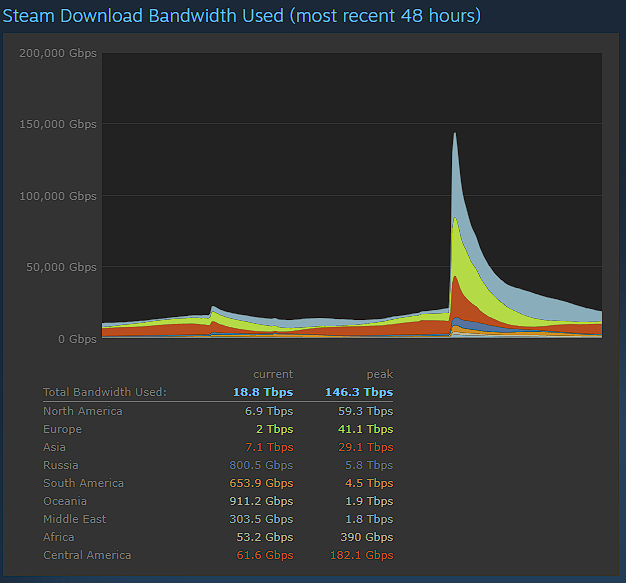this post was submitted on 04 Aug 2023
1464 points (98.8% liked)
Games
33699 readers
2096 users here now

Welcome to the largest gaming community on Lemmy! Discussion for all kinds of games. Video games, tabletop games, card games etc.
Weekly Threads:
Rules:
-
Submissions have to be related to games
-
No bigotry or harassment, be civil
-
No excessive self-promotion
-
Stay on-topic; no memes, funny videos, giveaways, reposts, or low-effort posts
-
Mark Spoilers and NSFW
-
No linking to piracy
More information about the community rules can be found here.
founded 2 years ago
MODERATORS
you are viewing a single comment's thread
view the rest of the comments
view the rest of the comments

I'm looking forward to the return of games so big they merit physical distribution. Like, the first terabyte game that comes on its own SSD - plug it into a spare M2 slot or a USB3 port and go.
You're not going to see it unfortunately. They'll just assume that you're on gigabit and will spend 3 hours downloading it.
In a Datacenter that I have some equipment in, it's $300 a month for 1gbps. At that cost, 3 hours of bandwidth costs them $1.20... this is cheaper than any current device that can hold 1TB by leaps and bounds. Forget that they'd have way bigger pipes than that and at a much better cost/gbps.
On top of that you can also program stuff to do distributed file serving (eg. bittorrent) to alleviate the datacenter costs too. So that $1.20 is a "worst case" scenario... and the costs plummet hard at each cost-cutting step they could take.